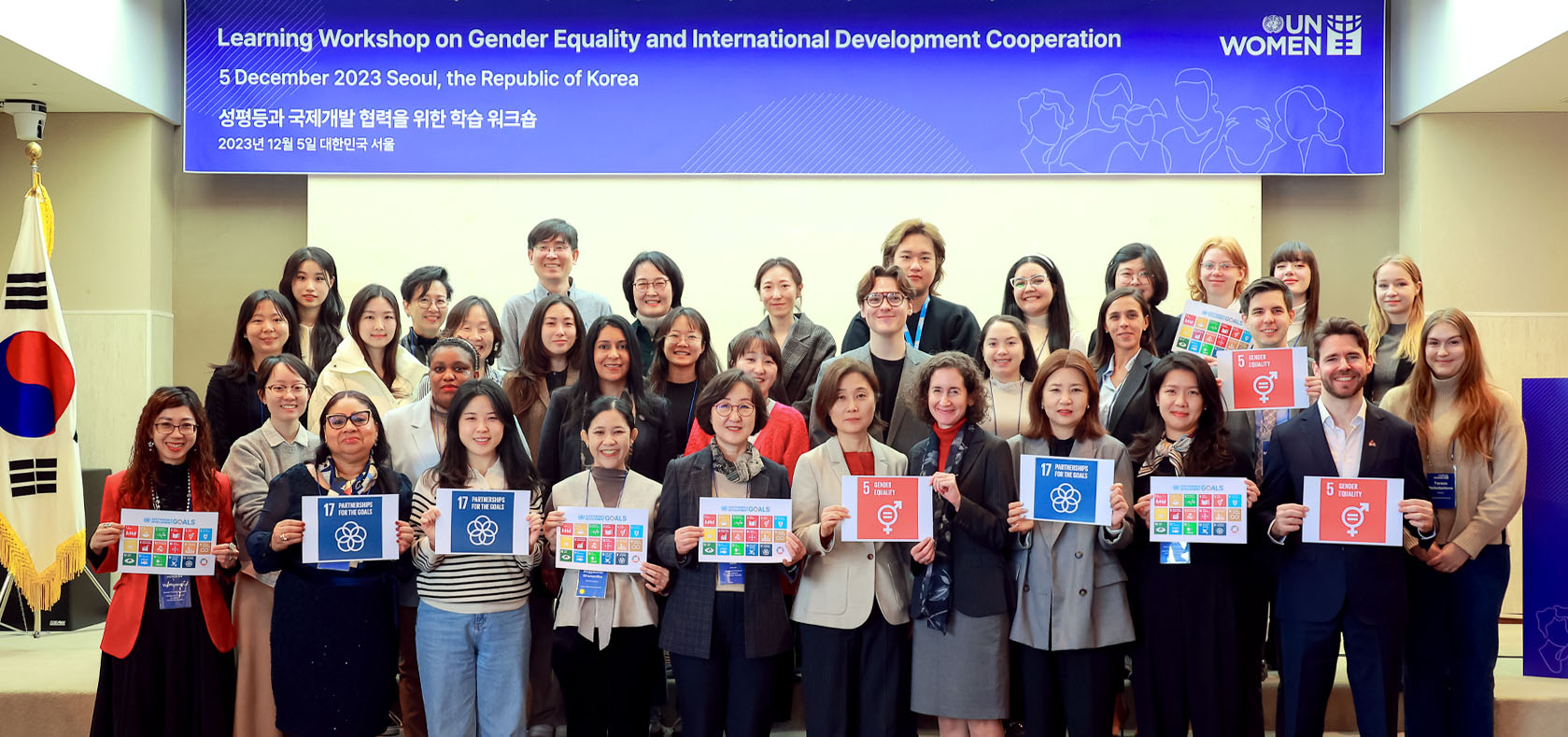[Press release]

Experts, public sector and civil society organization representatives gathered to discuss IDC programmes advancing gender equality, are taking a photo. Photo: UN Women/Jaeki Kim
English | 한국어
Seoul, Republic of Korea – 50 experts, public sector, and civil society organization representatives gathered in Seoul to discuss ways to advance gender equality through international development cooperation (IDC) on 5 December 2023.
IDC is an overarching term that captures multiple international efforts and actions to advance development agendas. IDC policies have played a critical role in achieving sustainable development due to their ability to shape official development assistance, also known as ODA.
The workshop ‘’Gender Equality and International Development Cooperation” hosted by UN Women Centre of Excellence for Gender Equality, emphasized the importance and impact of IDC in addressing gender inequality and the empowerment of women.
Jeongshim Lee, Director of the Centre, pointed out: “Although ODA remains an essential source of financing for gender equality and women’s empowerment, the share of ODA for gender equality has been stagnating.”

Jeongshim Lee, Director of the UN Women Centre of Excellence for Gender Equality, is opening the event ‘Learning Workshop on Gender Equality and International Development Cooperation.’ Photo: UN Women/Jaeki Kim
However, at a global level, only 4 per cent of bilateral ODA are stand-alone projects with a dedicated objective for gender equality and women’s empowerment. Projects that integrate or mainstream gender equality and women’s empowerment in their objectives remain 40 per cent of bilateral ODA.
Janelle Weissman, Head of External Relations at UN Women Regional Office for Asia and the Pacific, presented regional trends on gender equality and women’s empowerment (GEWE)-related aid in Asia and the Pacific and underlined the need for a substantive increase in gender-focused ODA – both with GEWE as principal and as a significant policy objective.
Panel members also shared existing ODA efforts of the RoK that focus on gender, highlighting the importance of mainstreaming gender in ODA from a gender equality and economic policy perspective.
Zohra Khan, Senior Policy Advisor on Governance at UN Women, introduced the agency’s work to increase financing for gender equality and the empowerment of all women and girls. According to her, UN Women cooperates with financial institutions, governments and private sector actors to develop the work on financing for gender in IDC. Gender responsive budgeting, integrated national financing framework (INFF) with gender targets, and innovative financing instruments were some of the efforts mentioned during the workshop to leverage resources for gender equality.
The UN Women Centre of Excellence for Gender Equality aims to be a regional platform for in-depth learning and exchange of experiences to strengthen the response to gender inequality and transform harmful social norms in the fast-changing and unique social landscape of Asia and the Pacific. The Centre seeks to leverage gender mainstreaming policies, research, and know-how from member states to increase the pool of knowledge on gender equality and empowerment of women across Asia and the Pacific.

